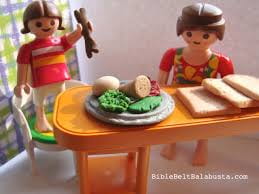All over my Facebook feed this week I kept reading, “YOU ARE ALLOWED TO HAVE A SHVACH* SEDER (* = weak, pathetic)” (see below) and I have to say, it is really what I needed to hear. Passover has always been my favorite holiday and this year first Seder is less than a week away and my family has few plans. I’ve realized that not only am I overwhelmed by planning something else on top of school and daily family responsibilities, but also Passover has become symbolic for everything that has suddenly changed in our lives and everything we have suddenly lost. It has been hard to face. Every time I think about a Seder without family or friends, I am just too sad.
So far, what I do know that the answer for my family won’t be to try to recreate what we had planned for this year or experienced last year. Nor will a digital Seder work for my small and rambunctious kids. Instead we will do something really different more than just Passover different. Seder nights are always different from other nights, but this seder night will be different from all other seders too so I’m focusing on an experience that we can only have in our small family group. Maybe we’ll turn our table into a tent and eat our meal underneath it. Maybe we’ll pretend we are leaving Egypt and do each part of our seder in a different place in our house on the way. Maybe we’ll just watch Prince of Egypt in our pajamas.
There’s no right answer for any of us, but we are all in the same boat. If you are looking for ideas friends of mine posted this amazing resource online. It includes ideas and texts to help make sure that this year’s seder is the best it can be for you and your family, even if that means watching a movie and calling it a night. It has new ideas, ways to wrap your heads around old ones, and tons of textual resources you might want to add to your seder.
(*—weak, pathetic)
You do not need to set up a multi-media, multi-layered presentation on Zoom. You do not need to cook 17 dishes that remind you of all the family members you are not gathering with. You do not need to do all the cool things that people are suggesting for small seders. You do not need to go out on your mirpeset/porch at 11 pm and sing Chag Gadya with your neighbors. You do not need to compile an “in these times”-themed haggadah or seder supplement.

Leave a Reply